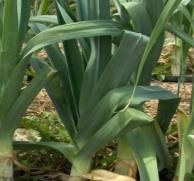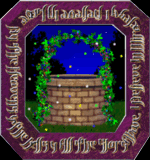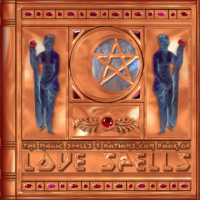Leek
The Leek (Allium porrium) bears an Anglo-Saxon name corrupted from Porleac, and it is also called the Porret, having been the Prason of the Greeks. It was first made use of in England during 1562.
Added Sep 9, 2010
| 8,231 Reads
This was a food of the poor in ancient Egypt, as is shown by an inscription on one of the Pyramids, whence was derived the phrase, "to eat the Leek"; and its loss was bewailed by the Israelites in their journey through the Desert. It was said by the Romans to be prolific of virtue, because Latona, the mother of Apollo, longed after leeks. The Welsh, who take them much, are observed to be very fruitful. They dedicate these plants to St. David, on whose day, March 1st, in 640, the Britons (who were known to each other by displaying in their caps, at the inspiration of St. David, some leeks, "the fairest emblym that is worne," plucked in a garden near the field of action) gained a complete victory over the Saxons. The bulb contains some sulphur, and is, in its raw state, a stimulating expectorant. Its juice acts energetically on the kidneys, and dissolves the calculous formations of earthy phosphates which frequently form in the bladder. For chilblains, chapped hands, and sore eyes, the juice of a leek squeezed out, and mixed with cream, has been found curative. Old Tusser tells us, in his Husbandry for March:— "Now leeks are in season, for pottage full good, and a trite proverb of former times bids us:— "Eat leeks in Lide [March] and ramsons in May, Ramsons, or the Wild Garlic (Allium ursinum), is broad leaved, and grows abundantly on our moist meadow banks, with a strong smell of onions when crushed or bruised. It is perennial, having egg-shaped or lance-like leaves, whilst bearing large, pearly-white blossoms with acute petals. The name is the plural of "Ramse," or "Ram," which signifies strong-smelling, or rank. And the plant is also called "Buck Rams," or "Buck Rampe," in allusion to its spadix or spathe. "The leaves of Ramsons," says Gerard, "are stamped and eaten with fish, even as we do eat greene sauce made with sorrell." This is "Bear's Garlic," and the Star Flower of florists. Leeks were so highly esteemed by the Emperor Nero, that his subjects gave him the sobriquet of "Porrophagus." He took them with oil for several days in each month to clear his voice, eating no bread on those days. The Scotch leek is more hardy and pungent than that grown in England. It was formerly a favourite ingredient in the Cock-a-Leekie soup of Caledonia, which is so graphically described by Sir alter Scott. A "Herby" pie, peculiar to Cornwall, is made of leeks and pilchards, or of nettles, pepper cress, parsley, mustard, and spinach, with thin slices of pork. At the bottom of the Squab pie mentioned before was a Squab, or young Cormorant, "which diffused," says Charles Kingsley, "through the pie, and through the ambient air, a delicate odour of mingled guano and polecat." That "lovers live by love, as larks by leeks," is an old saying; and in the classic story of Pyramus and Thisbe, reference is made to the beautiful emerald green which the leaves of the leek exhibit. "His eyes were as green as leeks." Among the Welsh farmers, it is a neighbourly custom to attend on a certain day and plough the land of a poor proprietor whose means are limited—each bringing with him one or more leeks for making the soup or broth.
Added Sep 9, 2010
| 8,231 Reads
Share The Magic ...
The GoE MONEY!!! Course - A Course In Real MONEY MAGIC!
|





















